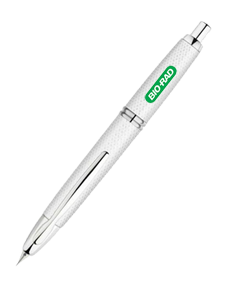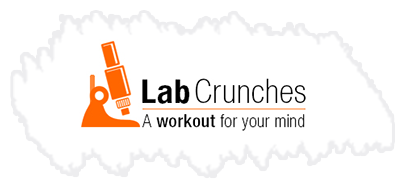
Popular topics

-
References
Vasilevsky NS et al. (2013). On the reproducibility of science: unique identification of research resources in the biomedical literature. PeerJ, 1:e148. doi: 10.7717/peerj.148.
New Year's Lab Resolutions

2020 is not only a new year but also the start of a new decade. This is a great opportunity to reflect on your accomplishments and make resolutions to prioritize what you want to achieve in 2020 and beyond.
Small Changes Could Lead to Big Things
No matter what stage you are at in your career, there will be changes that can make a difference. If you are a final year PhD student, you may want to ensure that you finish your PhD on time. You could set yourself monthly goals to break down writing and make sure that you fit in key experiments within your timeframe.
Working towards tenure? Think about what you can do now and in the future to help achieve this. Set yourself milestones and plan what you could do to hit them.
When you are busy in the lab, it is difficult to do as much reading as you would like (or should do). Keep up-to-date with papers by planning reading time into your schedule. Even if you can’t read everything that you would like to, you can at least increase the amount you do read. This will also help your thought process when deciding on approaches to your own research questions.
One thing that everyone could do that would help the entire research community is citing antibodies correctly in publications. A study in 2013, carried out by researchers in the USA and UK, found that “54 percent of resources are not uniquely identifiable in publications" (Vasilevsky et al. 2013). By including all relevant identifying information (name, clone, conjugate, catalog/SKU code, and company), antibodies used in publications can be picked up by specialist antibody search engines and included in their results. This would make it easier for other researchers to find and use the same antibody in their own experiments without the guesswork of figuring out which antibody was actually used in a publication.
Stuck for Ideas?
It can be tricky trying to decide what you should focus on this year so we asked scientists what New Year’s resolutions they were planning on making. Take a look at their suggestions for inspiration.
“I am going to be teaching much more than I usually do in the Spring. My resolution is to learn to accept that although I will get less lab work done during this time it is as valuable a use of my time as being at the bench.“ Vicki, Associate Research Scholar, Princeton University, USA.
“I am going to spend more time doing background reading on my assays to help me when troubleshooting and pre-book lab equipment in advance to better plan my time." Fran, Postdoctoral Research Scientist, University of Oxford, UK.
“Publish! The highest priority for me right now, with the REF 2021 deadline approaching, is publications.” Jen, Lecturer in Biomedical Sciences, Coventry University, UK.
“Establish a new Immunology lab in our university and do research with colleagues.” Wasihun, Lecturer of Immunology, Debre Tabor University, Ethiopia.
Have you got a New Year Resolution that you want to share?
Join in the conversation on our social channels by using #NewYearsLabResolutions
References
Vasilevsky NS et al. (2013). On the reproducibility of science: unique identification of research resources in the biomedical literature. PeerJ, 1:e148. doi: 10.7717/peerj.148.
You may also be interested in...
















